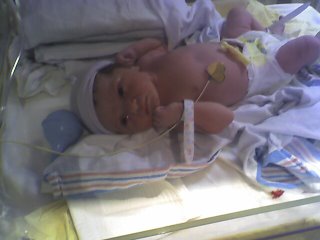Jesus in the Margins: Part 2-- Shame
Jesus made being marginal central.
He did it primarily by his meal-time practices.
In Jesus' day the Jewish culture operated on the power of shame. Social relationships were arranged hierarcially with those closest to God--the High Priest--then priests, Levites, obedient Jews on down to those most removed from God--Gentiles, shepherds, tax-collectors, prostitutes and generally the am ha 'aretz, the "people of the land," the illiterate human trash. You were kept in your place by stringent social shaming.
For example, Simon the Pharisee invited Jesus into his home and then immediately proceeded to exert the power of social shame (see Luke 7: 36-50). By deliberately humiliating Jesus before all his guests, Simon sought to put this upstart "prophet" from Hicksville, Galilee in his proper place.
Oops. Shame does not work on Jesus. Rolling with Simon's shame punch, Jesus proceeds to interpret a redeemed prostitute's actions for Simon and the guests. All the shame meant to slime Jesus boomeranged onto Simon. At a meal.
To be marginalized in Jesus' day meant to be shamed. Publicly humiliated and socially ostracized and spiritually scorned. You were considered, not just someone who did bad things, you were a bad, unclean person. To up the ante, the social shame declared that you were cut off from God. You had no place at the holy table. You were an outsider. You were gutter trash. You had no identity other than to be the foil for "the righteous ones" who said things like, "God, I am so glad I'm not like that tax-collector/same sex-oriented person/abortion-minded woman/alcoholic/Hezbollah terrorist over there."
Jesus prepares his table. The thing you never felt in his presence was shame. You felt welcomed. You felt honored. You felt joy. You felt included. You felt valued. You felt family. You heard "my friend" and looked up and saw that Jesus meant you.
"But I, I am...a very rich tax-collector."
"I am a...furious zealot with blood on my hands."
"I am...am an unclean woman with an issue of blood."
"I am a smelly shepherd."
"I am a desperate prostitute."
"I am a lonely leper."
"I am a hated Roman centurion."
"I am a despised Samaritan and immoral woman."
"I am am ha 'aretz."
Jesus looks at us and smiles. He raises his hands and blesses the bread from the earth and the wine from the grape. He blesses as only a Good Host can bless. By the time he stops, we really don't care what we are, but who he is. And one thing he is, he's for us, not against us.
Jesus, as host, says, "Hey, Deborah and Matthew, separate a little bit. We've got to make room for father Abraham when he shows up. Good. You guys, there, make a place for Isaac. Alright. Let's eat."
Dark shame flees into the night in the presence of Light. Sadly the fleeing shame seeps into the crevases of graceless hearts turns into homicidal hatred. Shame hates being shamed.
"This is my body given for you" ...and they felt no shame.











